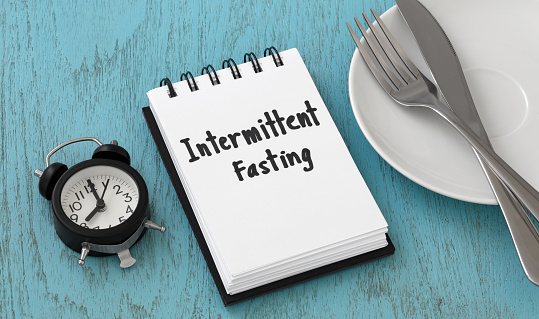Intermittent Fasting: A Beginner’s Guide
Intermittent Fasting: A Beginner’s Guide

Intermittent Fasting: A Beginner’s Guide
Intermittent fasting is a popular eating pattern involving alternating fasting and eating periods. It has gained popularity recently due to its potential health benefits, ease of implementation, and flexibility.
You might have heard about intermittent fasting and its potential benefits, but you need more information. Here is a beginner’s guide on the popular eating pattern.
What is Intermittent Fasting?
Intermittent fasting is an eating pattern that involves restricting food intake for a specific period, followed by a period of normal eating. There are different methods of intermittent fasting, but the most common ones are:
Types of Intermittent Fasting
- The 16/8 method involves skipping breakfast and restricting eating to an 8-hour window, followed by a 16-hour fasting period.
- The 5:2 diet involves eating normally for five days and restricting calorie intake to 500-600 calories for two non-consecutive days.
- Alternative-day fasting involves fasting every other day or consuming 500-600 calories on fasting days.
- Eat-Stop-Eat involves fasting for 24 hours once or twice a week.
Is Intermittent fasting a diet type?
Intermittent fasting does not specify which foods to eat but when to eat them. It is more of an eating pattern than a diet. However, eating healthy and balanced meals during the eating period is essential to reap the full benefits of intermittent fasting.
The Benefits of Intermittent Fasting
Intermittent fasting has numerous potential health benefits, which include:
Weight Loss
Intermittent fasting may help with weight loss by reducing calorie intake, increasing metabolism, and reducing insulin resistance. Studies have shown intermittent fasting can lead to significant weight loss, particularly belly fat.
Improves Metabolic Health
The popular eating pattern can improve metabolic health by reducing insulin resistance, blood sugar levels, and inflammation. It may also improve blood lipid levels by lowering triglycerides and increasing HDL (good) cholesterol.
Enhance Brain Function
Intermittent fasting can improve brain function and cognitive performance by increasing the production of brain-derived neurotrophic factor (BDNF), a protein that plays a role in brain health.
May Reduce the Risk of Chronic Diseases
Intermittent fasting may reduce the risk of chronic diseases such as heart disease, diabetes, and cancer. Studies have shown intermittent fasting can improve several risk factors for these diseases, including blood pressure, blood sugar levels, and inflammation.
Increases Longevity
Intermittent fasting may increase lifespan by promoting cellular repair processes and reducing oxidative stress.
Limitations of Intermittent Fasting
While intermittent fasting has potential health benefits, it may not suit some. Some of the limitations of intermittent fasting include the following:
- Sustainability: Intermittent fasting may be challenging for some people, particularly those with a busy lifestyle or who eat multiple meals daily. It may also cause discomfort during fasting, such as hunger, fatigue, and irritability.
- Overeating: Intermittent fasting may lead to overeating during the eating period, which can negate the benefits of fasting. Eating healthy and balanced meals during the eating period and avoiding binge eating are essential.
- May interfere with Medications: Intermittent fasting may interfere with medications, particularly those that require food intake. It is essential to consult a healthcare professional before you start intermittent fasting if you are on medication.
- Suitability: Intermittent fasting may not be suitable for specific populations like pregnant or breastfeeding women, children, and people with a history of eating disorders or other medical conditions.
